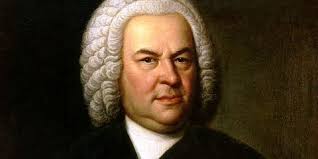Latest Comments

Bach – Flute Sonata in B minor
Johann Sebastian Bach’s Flute Sonata in B minor, BWV 1030, stands as one of the most profound and expressive chamber works ever composed for the[…]

Bach – Six Suites for Solo Cello
Johann Sebastian Bach’s Six Suites for Solo Cello (BWV 1007–1012) stand among the most iconic and enduring works in the entire cello repertoire. Composed during[…]

Bach – St Matthew Passion
Among the towering masterpieces of Western classical music, few works have achieved the spiritual and artistic magnitude of Johann Sebastian Bach’s St Matthew Passion (Matthäus-Passion,[…]

Bach – Concerto for Two Violins in D minor
The Concerto for Two Violins in D minor, BWV 1043, also known as the “Double Violin Concerto”, is one of the most celebrated and enduring[…]

Bach – The Brandenburg Concertos
The Brandenburg Concertos by Johann Sebastian Bach stand among the crowning achievements of Baroque music. Composed in the early 18th century, these six concertos display[…]

The Story Behind Bach’s Cantata No. 152
Johann Sebastian Bach, one of the most influential composers of the Baroque era, created Cantata No. 152, titled “Tritt auf die Glaubensbahn” (“Step Upon the[…]

The Story Behind Bach’s Toccata and Fugue
Johann Sebastian Bach’s Toccata and Fugue in D minor, BWV 565 is one of the most iconic and widely recognized pieces of classical organ music.[…]

The Story Behind Bach’s Toccata and Fugue
The Toccata and Fugue in D minor, BWV 565, stands as one of the most recognizable and celebrated compositions in Western classical music. Composed by[…]

Top 10 Bach Songs
Johann Sebastian Bach (1685-1750) stands as one of the most celebrated composers in the Western classical tradition. His work, characterized by intricate counterpoint and profound[…]

Johann Sebastian Bach – Biography and History
Johann Sebastian Bach, a towering figure in the history of classical music, was born on March 31, 1685, in Eisenach, Germany. He came from a[…]
© 2025 Top Classical Music. Created with ❤ using WordPress and Kubio